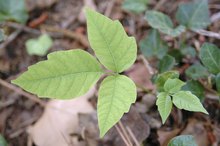What does fact checked mean?
At Healthfully, we strive to deliver objective content that is accurate and up-to-date. Our team periodically reviews articles in order to ensure content quality. The sources cited below consist of evidence from peer-reviewed journals, prominent medical organizations, academic associations, and government data.
The information contained on this site is for informational purposes only, and should not be used as a substitute for the advice of a professional health care provider. Please check with the appropriate physician regarding health questions and concerns. Although we strive to deliver accurate and up-to-date information, no guarantee to that effect is made.
Chocolate & Eczema
Eczema is a chronic skin condition that is similar to an allergy that is triggered by certain factors, such as dry skin, extreme temperatures and foods. Even people who do not suffer from a food allergy, need to be aware of particular foods that can cause an eczema flare-up, according to the Dr. Kaslow website. Chocolate, among other foods have been shown to aggravate the skin, leading to eczema. If the patient shows consistent flare-ups after eating chocolate, he should eliminate chocolate from his diet.
About Eczema
Eczema is a skin condition that causes inflammation, itching and small blisters to develop. The Mayo Clinic states that the cause of eczema is still undetermined, but children with parents who have asthma or allergies are considered at a higher risk of developing the condition 2. Eczema is like an allergic reaction, in that it is a hypersensitivity to the skin. There is no cure for eczema. Identifying the different elements that trigger the condition is the best way to manage it.
- Eczema is a skin condition that causes inflammation, itching and small blisters to develop.
- Eczema is like an allergic reaction, in that it is a hypersensitivity to the skin.
Chocolate Consideration
Dairy Intolerance and Eczema
Learn More
Chocolate can cause an eczema outbreak in some people, according to Dr. Kaslow. When a person eats chocolate it can cause toxins in the body to raise in the surface of the skin, irritation it. If the individual is allergic to chocolate or dairy products and suffers from eczema, consuming chocolate will lead to a flare-up.
Symptoms
If chocolate is triggering eczema, the following symptoms will develop within a few minutes and up to an hour after ingesting the chocolate. If the person is allergic to ingredients in chocolate, she may develop shortness of breathe, hives and nasal congestion.
Treatment
Skin Rash From Chocolate
Learn More
The Mayo Clinic states that the most effective treatment for eczema is to eliminate known triggers from a person's lifestyle 2. Avoid eating chocolate and products containing cocoa or cow’s milk. General treatment once the rash is apparent is to use hydrocortisone creams, cover the exposed skin, use cold compresses to reduce itching and redness and take an oral antihistamine, according to MedlinePlus 3.
Complications
A common complication from eczema is secondary skin infections, such as impetigo. If a person scratches the skin, the skin can break, leaving it open to harmful viruses and bacteria. To prevent secondary infections, keep open wounds covered.
Related Articles
References
- Mayo Clinic: Dermatitis
- MedlinePlus: Atopic Eczema
- Ahmed A, Shah R, Papadopoulos L, Bewley A. An ethnographic study into the psychological impact and adaptive mechanisms of living with hand eczema. Clin Exp Dermatol. 2015;40(5):495-501. doi:10.1111/ced.12619
- Chang YS, Chiang BL. Sleep disorders and atopic dermatitis: A 2-way street?. J Allergy Clin Immunol. 2018;142(4):1033-1040. doi.10.1016/j.jaci.2018.08.005
- Hon KL, Pong NH, Poon TC, et al. Quality of life and psychosocial issues are important outcome measures in eczema treatment. J Dermatolog Treat. 2015;26(1):83-9. doi:10.3109/09546634.2013.873762
Writer Bio
Diane Marks started her writing career in 2010 and has been in health care administration for more than 30 years. She holds a registered nurse license from Citizens General Hospital School of Nursing, a Bachelor of Arts in health care education from California University of Pennsylvania and a Master of Science in health administration from the University of Pittsburgh.









